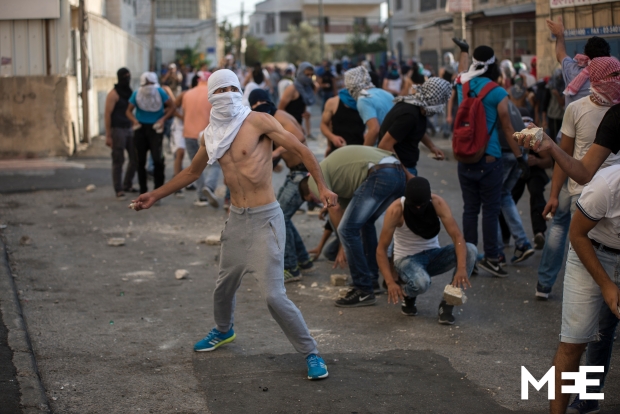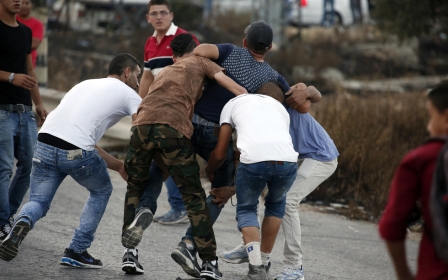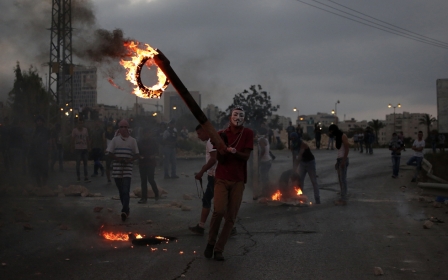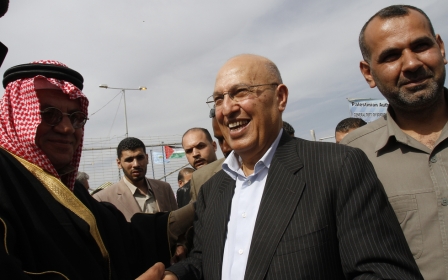Israel demolishes Palestinian homes in crackdown
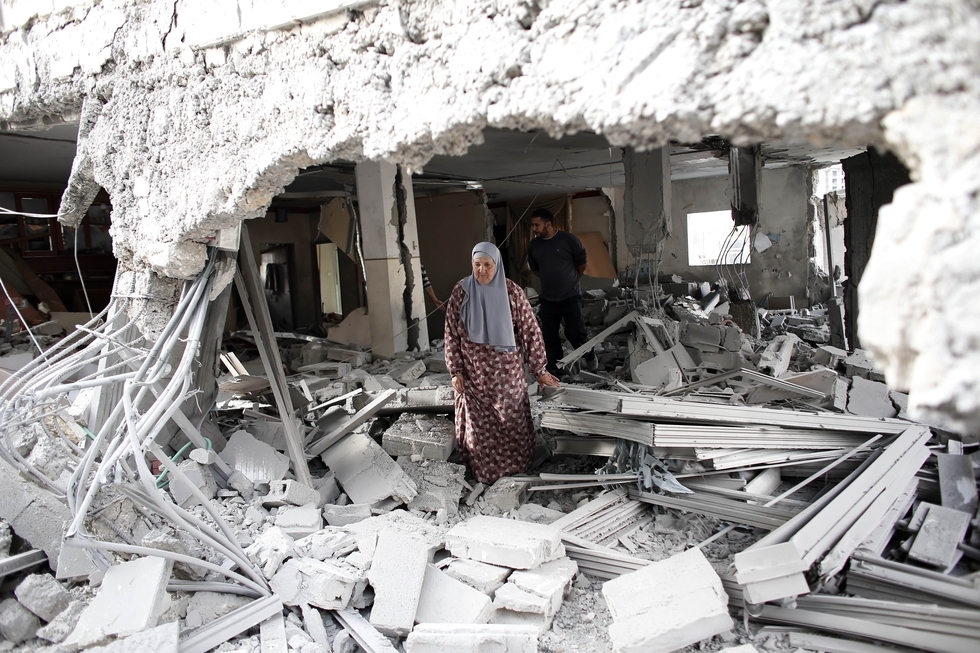
Israel on Tuesday demolished the homes of two Palestinians behind attacks and sealed off a room in another, the army said, after Prime Minister Benjamin Netanyahu pledged an iron fist against mounting unrest.
The houses knocked down were the former homes of Ghassan Abu Jamal and Mohammed Jaabis, a military statement said.
They were placed under demolition orders after the men attacked Israelis last year.
Armed with meat cleavers and a pistol, Abu Jamal and his cousin Uday Abu Jamal killed four rabbis and a police officer before being shot dead in November 2014.
Jaabis rammed an earthmover into a bus on 4 August last year, killing an Israeli and wounding several others. He was shot dead by police at the scene.
An AFP journalist saw the gutted inside of a house in East Jerusalem that witnesses said was the former residence of Abu Jamal.
Yasser Abdu, 40, a neighbour and friend of the Abu Jamals accused Israel of a "policy of collective punishment".
The demolition explosion, which took place at approximately 0220 GMT, blew out the interior of the structure but the supporting pillars remained intact, an AFP journalist said.
The blast damaged other apartments in the building as well as surrounding structures.
Eyewitnesses said police and other authorities arrived at midnight, locking down the area before drilling and planting the explosives.
A room was also sealed off at the former home of Muataz Hijazi, who in October 2014 tried to gun down a right-wing Jewish activist, critically wounding him. Hijazi was shot dead the next morning during a police raid.
'Intifada' memories fresh
The demolitions had been challenged in Israel's top court which ultimately approved them months ago.
The court also approved sealing the room but not demolishing the structure, since Hijazi's attack "did not ultimately result in the loss of human life".
Israeli rights organisation B'Tselem says that the main victims of such demolitions are relatives forced to pay for another person's actions.
Israel's close ally the United States has been among those who have said the measure only serves to increase tensions.
The punitive measures come after clashes have spread in East Jerusalem and the occupied West Bank in recent days following the deaths of four Israelis.
The spike in violence has brought international calls for calm, with concerns the unrest could spin out of control and memories of previous Palestinian uprisings still fresh.
In the wake of the violence, Netanyahu has announced a series of new security measures and right-wing politicians have urged the demolitions to be brought forward.
On Tuesday, Israel lifted rare restrictions barring Palestinians who were not residents of Jerusalem's Old City, business owners or students from entering it, imposed for two days after two Israelis were stabbed to death there.
Worship at the sensitive Al-Aqsa mosque compound would continue to be limited to men aged 50 and above. There is no age limit for women.
Around 300,000 Palestinians live in Israeli-annexed East Jerusalem, where the Old City is located.
UN's Ban calls for Israeli probe after clashes kill four
UN Secretary-General Ban Ki-moon urged Israel on Tuesday to conduct a full investigation of recent clashes in Jerusalem and the West Bank and criticized the demolition of Palestinian houses.
Ban said a "prompt and transparent" probe of the recent violence in which a 13-year-old was killed by Israeli soldiers would serve to determine "whether the use of force was proportional."
More clashes erupted Tuesday, including in Bethlehem following the funeral of the teenage boy. Four Palestinians have died in recent days.
Ban said that the latest clashes were "yet another worrisome sign of violence potentially spiralling out of control."
He added that demolishing Palestinian homes could "inflame tensions still further" after Israel destroyed two houses owned by Palestinians who allegedly attacked Israelis last year.
The UN chief called for "urgent action by both sides" to curb the violence including through security cooperation.
Palestinian president Mahmud Abbas said earlier that he wanted to avoid an escalation amid fears that the clashes could trigger a new uprising.
"We don't want a military and security escalation with Israel," Abbas said at a meeting of Palestinian officials, according to official news agency Wafa.
"We are telling our security forces, our political movements, that we do not want an escalation, but that we want to protect ourselves."
On Monday, troops shot dead 13-year-old Palestinian Abdel Rahman Abdullah -- the second killing of a Palestinian in 24 hours -- as dozens were wounded in fresh clashes.
After his funeral Tuesday, about 100 masked youths in Palestinian keffiyehs stoned soldiers who responded with tear gas and rubber bullets.
"My son went to school like all the other kids, then he finished school but he never came back home," his mother Dalal said before the burial, accusing soldiers of shooting him for no reason.
Israeli Prime Minister Benjamin Netanyahu, meanwhile, announced on Tuesday plans to install security cameras along roads in the occupied West Bank.
"A significant part of the attacks are taking place along the roads," he told reporters.
"We have agreed upon a very serious plan in which we set up cameras not only on the ground but also in the air throughout all the routes... with control rooms and quick reaction abilities," Netanyahu said.
Middle East Eye propose une couverture et une analyse indépendantes et incomparables du Moyen-Orient, de l’Afrique du Nord et d’autres régions du monde. Pour en savoir plus sur la reprise de ce contenu et les frais qui s’appliquent, veuillez remplir ce formulaire [en anglais]. Pour en savoir plus sur MEE, cliquez ici [en anglais].


